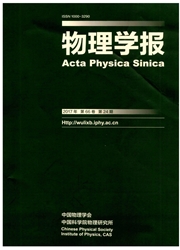

 中文摘要:
中文摘要:
随着水轮发电机的大型化发展,对发电机冷却技术的要求也越来越高.不同冷却方式不仅会影响水轮发电机的结构,同时也会影响发电机的能耗和可靠性.本文首先对水轮发电机三种常见冷却方式进行了定性对比分析,然后提出基于层次分析法的水轮发电机冷却方式综合评价方法.最后,利用该方法对李家峡400 MW空冷机组和蒸发冷却机组进行了综合评价,评价结果表明蒸发冷却方式优于空冷方式,本文所提出的评价方法能够定量计算冷却方式带来的水轮发电机性能差异,为水轮发电机的节能改造提供了指导依据.
 英文摘要:
英文摘要:
With the development of large-scale hydro-generators, large hydro-generator cooling technology is increasingly demanded. Different cooling method will not only affect the structure of hydro-generators, also it will affect the energy consumption and reliability of the generators. The commonly large-scale hydro-generator cooling method includes: air cooling, water cooling, and evaporative cooling methods. This paper analyzes the principle of the three cooling methods and describes qualitatively the advantages and disadvantages of them. The air cooling hydro-generator structure is simple, but the generator operating temperature is high; the water-cooling method has a certain superior in cooling performance, but it requires more auxiliary equipments, and has higher equipment failure rates. The evaporative cooling method is a recently developed cooling technique. It not only has a remarkable cooling effect, but also can decrease the equipment failure rates and the cost of maintenance. In order to build a comprehensive model to assess the three hydro-generator cooling methods, this paper proposes a comprehensive evaluation method based on AHP. The method includes 11 indexes of resource consumption, energy consumption and reliability to assess the influence of cooling ways. The energy saving influence of all the 11 indicators are calculated by using the AHP comprehensive evaluation. Finally, comparison between a 400 MW air cooling and an evaporative cooling hydro-generators at Lijiaxia hydropower Station are made using the proposed method. Evaluation results indicate that in terms of daily operation, the energy saving of the evaporative cooling hydro-generator can be more than 300 tons standard coal equivalent per year as compared with that of air cooling generator. In terms of maintenance, the evaporative cooling method can save more than 5000 tons of standard coal equivalent per year. The comprehensive evaluation results show that the evaporative cooling method is significantly better than the air cooling. It can be
 同期刊论文项目
同期刊论文项目
 同项目期刊论文
同项目期刊论文
 期刊信息
期刊信息
